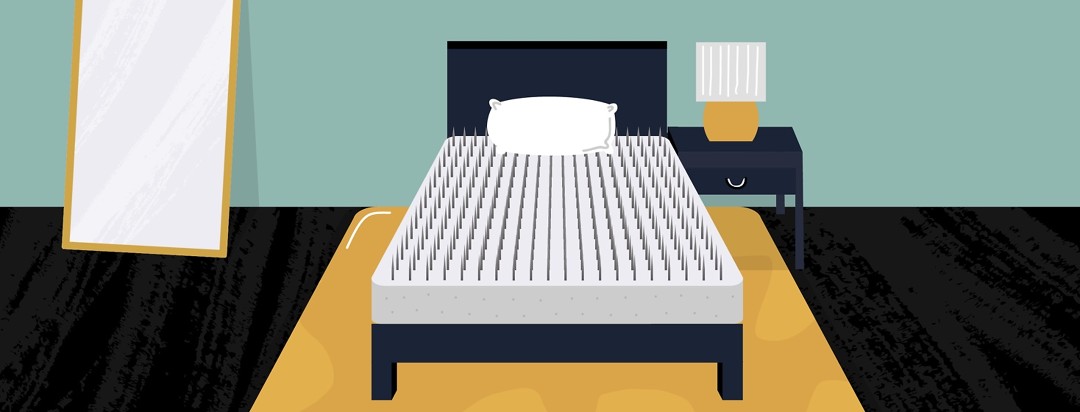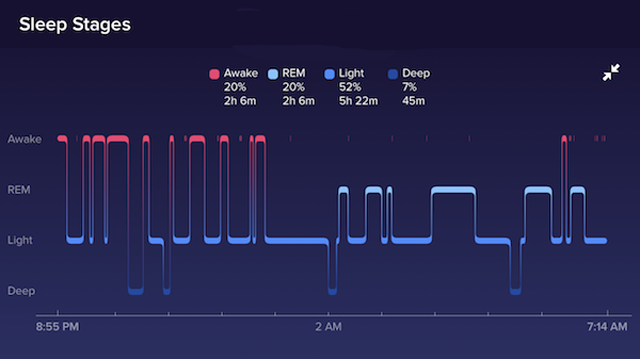Pain and Sleep - a Two-Way Street
Below is a screenshot from my phone. It shows a recent night of sleep tracking from my Fitbit. The red parts are when I was awake. It’s pretty easy to tell from this picture when I got up, took two (more) Tylenol®, and finally got some decent sleep.
RA joint pain and sleep disturbance
We’ve all been there. All those little aches and pains that we don’t notice (or simply ignore) during the day when we’re busy seem to magnify themselves in the dark quiet of the night. That slightly sore ankle, knee, hip or shoulder suddenly takes over your whole attention and will not let you get comfortable and go to sleep.
The pain keeps me awake
I’ve complained (to whoever would listen) about pain keeping me awake. Various doctors have prescribed various pain medications, which have had various results. I’ve always contended that the problem wasn’t the pain, the problem was the lack of sleep. If I’m asleep, I don’t realize that I’m in pain.
The impact of sleep disturbance
I know that when I’ve had a rough night’s sleep, I feel worse the next day. Everything seems to hurt more. This is not a coincidence. It turns out that sleep disturbance actually disrupts key processes that your body needs to combat pain. It is complex and various studies have included things like dopamine and opioid receptors that help your body manage pain.
And, based on the study, people with chronic pain seem to be especially affected. In addition, a study of fibromyalgia patients indicates that sleep acts as sort of a controller between pain and depression. The better the patient’s sleep, the fewer depressive symptoms they had – even with pain.
Sleep disturbance and the development of health conditions
Further, there appears to be a long-term association between sleep disturbance and certain conditions. In various studies, people with sleep disturbances were more likely to eventually develop conditions like fibromyalgia, headache (including migraine), and chronic musculoskeletal pain months or years in the future.
The future of sleep disturbance research
So what does all this mean? To me, it means there is a stronger link between pain and sleep than I ever imagined. But for scientists, and those of us with chronic painful conditions, there is good news.
One of the things that is being considered is whether treating sleep disturbance would be a preventative treatment for chronic pain or perhaps even be able to prevent people from developing painful conditions. If you treat the sleep disturbance early, can you lessen chronic pain or avoid things like fibromyalgia?
To me, sleep seems like an easier issue to address than pain or long-term conditions. I hope this is one of the answers we’re looking for.


Join the conversation